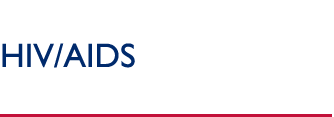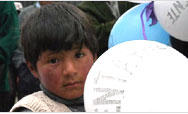Central America Regional Program
Although incomplete, available HIV surveillance data show that Central America’s HIV/AIDS epidemic is concentrated in large urban areas, with high prevalence rates in some Caribbean coastal areas as well. The epidemic appears to be growing, with HIV prevalence in some countries among the highest in Latin America. Although specific vulnerable groups are still major drivers of the epidemic, both Belize (with an adult prevalence rate of 2.5 percent) and Honduras (1.5 percent) have generalized epidemics, according to UNAIDS. Approximately 380,000 people in Central America are HIV-positive, with Honduras and Guatemala accounting for nearly one-third of the region’s total. In many Central
American countries, there is little HIV surveillance data collected from indigenous populations or areas outside the capital.
USAID programs in Central America are implemented in partnership with the U.S. President’s Emergency Plan for AIDS Relief (Emergency Plan/PEPFAR). In Central America, USAID provides direct technical support to and implements HIV/AIDS bilateral programs in El Salvador, Guatemala, Honduras, and Nicaragua. Examples of USAID country support include the following:
- Conducting prevention activities in El Salvador designed to reach more than 50,000 high-risk individuals, including men who have sex with men and sex workers
- Assisting Guatemala’s Ministry of Health in extending services for people with sexually transmitted infections and in need of voluntary counseling testing (VCT), as well as working with the private sector to improve quality and access to VCT
- Providing technical assistance to nongovernmental organizations in Honduras for expansion of behavior change and community care programs and VCT
- Assisting Pro Mujer, a microfinance organization, to improve the quality of its gynecology, family planning, and HIV prevention services for more than 21,000 adult female clients
View the HIV/AIDS Health Profile for the Central America Region - June 2008 [PDF, 201KB]
Country
Programs in this Region:
USAID Non-presence Countries Assisted
by the Central America Regional Program:
|


